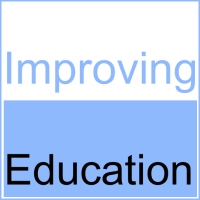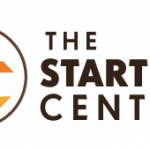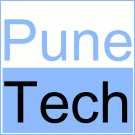(This article is a guest post by Parag Shah and first appeared on his blog. It is reproduced here with permission. Parag is a senior software engineer, who has his own one-person software company. In addition, he is also very interested in utilizing new media technologies such as blogs, podcasts, and screencasts to create a personalized, self paced, learning environment. He is in the process of creating mentoring services that use new media technologies, for helping software developers improve their programming skills. In this article he talks about how you can get for free the same education that a student of a Masters degree in the US could get. He is planning on going through it himself, and hopes you will join him.)

Since my formal education, a lot of advances have taken place in software development. I have been able to keep up with a few with regular reading and practice. But a lot of this learning has been a bit random, and as a result a bit dissipated as well. I feel like I want to engage in continuous learning, in a more organized manner.
Over the years there are several core concepts which I have forgotten because I have not been able to use them in my regular work. I feel like relearning those concepts.
I think the volume and content of both these can constitute a masters course in Computer Science. But I do not want to go back to school. Not because there is anything wrong with school – I had a great time in grad school. But here’s why…
I don’t want to go back to school because I want to define the courses I want to learn, and not pick up from what’s offered.
I don’t want to go back to school because I want to be able to learn at my own pace, which at times may be slower than 1 course per semester.
I don’t want to go back to school because I do not want to spend a fortune learning stuff which I can learn myself using free resources.
I don’t want to go back to school because I would rather create online/social credentials than get a school certificate.
I don’t want to go back to school because I want to demonstrate that a person can not only get knowledge but also credentials if they engage in disciplined self-study and leave learning trails on the Internet.
So this time I am doing a DIY (Do-It-Yourself) masters in Computer Science. so I can refresh things I have forgotten and learn new technologies and concepts which have gained importance in recent times, in an organized way.
I did a Masters in Computer Science more than a decade back. Since then, Internet, communication technologies, and social networking, have made it possible for someone to do a similar program all by themselves, using open courseware, and social learning.
By doing this program, I am not only planning to enhance my own knowledge, but am also hoping to show how one can get a Master’s education worth of knowledge, and credentials, by self learning, and without spending a fortune. Here’s a very brief statement of purpose.
My DIY Learning Process:
I have created a learning plan which outlines at a high level the topics I want to learn. I will study one or two topics at a time, and at a manageable pace, given other work commitments.
Once the topics to learn have been identified, I will identify learning resources, forums, and mentors for that topic.
A very basic study plan is to study the material, and make notes of my understanding, as well as questions and thoughts, I get in my mind as I am learning. I will make these notes available on a special blog. This blog will serve as a personal knowledge base (I can refer to it in the future), as well as a learning trail (for proof of study and understanding).
All the homework I do while I am taking a course will be made available in the public domain. I will either post it on my blog, or if the homework involves coding, on a public open source repository such as Github. I will also do one or more projects to practice the entire body of knowledge as a whole and publish that too in the public domain.
I will also create presentations of what I learn, and make them available in the public domain.
I will connect with mentors who are experts in the topic I am learning. Depending on their time availability I will request them to help me identify gaps in my understanding, and validate my knowledge.
When I have doubts, I will ask questions on Internet forums. If my questions are not answered satisfactorily on the forums, I will refer them to my mentors.
Please visit my learning plan for further details.
Establishing Credentials:
A person can have several reasons for learning. One is for the knowledge (either for the joy of knowing something, or for more practical application of the knowledge), and another for establishing credentials, so someone else may entrust us with work which requires such knowledge. A self learned person may have the knowledge, but may lack credentials to prove it. It is also possible for a person studying in a silo to think he has grokked what he just learned, when in reality he may not have understood the matter properly. To be able to provide proof of knowledge as well as to validate my learning with other practitioners, I plan to engage in what can be loosely classified as social learning.
I will do the following to document my learning and to engage with the community of practitioners, in the hope of validating my knowledge and establishing credentials for what I learn:
- Answer questions on forums
- Blog my study notes, and clearly articulate my takeaway from all the lectures I view, or text I read
- Create presentations and post them on YOUTube, or other video sharing services
- Publish homework on open source code repositories such as GitHub, etc
- Request my mentors to quiz me to help me find gaps in my understanding of a topic. I will publish the quiz as audio/video and request the mentor to post their feedback in the public domain
- Take quizzes and tests wherever possible and economical
So I am leaving these learning crumbs on various places on the Internet, but I need something to bring everything together. Something which can serve as the focal point, or a lens into all my learning. I created a wiki site to serve as the focal point.
Have you been meaning to learn something yourself? Perhaps you can do your own DIY course in whatever interests you. Here is a lens into my DIY experiment.
About the Author – Parag Shah
Parag has an M.S. in Computer Science from the University of North Carolina at Charlotte, and over 12 years of industry experience developing software and several years experience training developers in Java, and software design principles. Parag’s current obsession is to show that it is possible to do a DIY masters in Computer Science using open courseware and social learning principles. Check out his experiment at http://opencs.wikidot.com.







